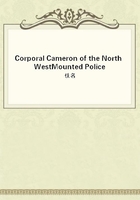
第15章
"Well, well, Davie, it blazes finely at any rate," said Mr. Rae, determined to be cheerful, and rubbing his hands before the blazing coal.
"Ay, it bleezes," grumbled Davie, "when it's no' smootherin'."
"Come then, Davie, that will do. Clear out," said Mr. Rae to the old servant, who was cleaning up the hearth with great diligence and care.
But Davie was not to be hurried. He had his regular routine in fire-mending, from which no power could move him. "Ay, Sir," he muttered, brushing away with his feather besom. "I'll clear oot when I clear up. When a thing's no' dune richt it's no dune ava."
"True, Davie, true enough; that's a noble sentiment. But will that no' do now?" Mr. Rae knew himself to be helpless in Davie's hands, and he knew also that nothing short of violence would hasten Davie from his "usual."
"Ay, that'll dae, because it's richt dune. But that's no' what I call cannel," grumbled Davie, glowering fiercely at the burning coal, as if meditating a fresh attack.
"Well, well," said Mr. Rae, "tell the Farquhars about it."
"Ay, Sir, I will that," said Davie, as he reluctantly took himself off with his scuttle and besom.
The Captain was bursting with fretful impatience. "Impudent old rascal!" he exclaimed. "Why don't you dismiss him?"
"Dismiss him!" echoed Mr. Rae in consternation. "Dismiss him!" he repeated, as if pondering an entirely new idea. "I doubt if Davie would consider that. But now let us to work." He set two arm-chairs before the fire, and placed a box of cigars by the Captain's elbow. "I have seen Sheratt," he began. "I'm quite clear it is not in his hands."
"In whose then?" burst forth the Captain.
Mr. Rae lit his cigar carefully. "The whole matter, I believe, lies now with the Chairman of the Board of Directors, Sir Archibald Brodie."
"Brodie!" cried the Captain. "I know him. Pompous little fool!"
"Fool, Captain Cameron! Make no mistake. Sir Archibald may have--ah--the self-importance of a self-made man somewhat under the average height, but he is, without doubt, the best financier that stands at this moment in Scotland, and during the last fifteen years he has brought up the Bank of Scotland to its present position. Fool! He's anything but that. But he has his weak spots--I wish I knew what they were!--and these we must seek to find out. Do you know him well?"
"Oh, yes, quite well," said the Captain; "that is, I've met him at various functions, where he always makes speeches. Very common, I call him. I know his father; a mere cottar. I mean," added the Captain hurriedly, for he remembered that Mr. Rae was of the same humble origin, "you know, he is thoroughly respectable and all that, but of no--ah--social or family standing; that is--oh, you understand."
"Quite," said Mr. Rae drily.
"Yes, I shall see him," continued the Captain briskly. "I shall certainly see him. It is a good suggestion. Sir Archibald knows my family; indeed, his father was from the Erracht region. I shall see him personally. I am glad you thought of that, Mr. Rae. These smaller men, Sheratt and the rest, I do not know--in fact, I do not seem to be able to manage them,--but with Sir Archibald there will be no difficulty, I feel quite confident. When can you arrange the interview?"
Mr. Rae sat gazing thoughtfully into the fire, more and more convinced every moment that he had made a false move in suggesting a meeting between the Captain and Sir Archibald Brodie. But labour as he might he could not turn the Captain from his purpose. He was resolved to see Sir Archibald at the earliest moment, and of the result of the meeting he had no manner of doubt.
"He knew my family, Sir," insisted the Captain. "Sir Archibald will undoubtedly accede to my suggestion--ah--request to withdraw his action. Arrange it, Mr. Rae, arrange it at once."
And ruefully enough Mr. Rae was compelled to yield against his better judgment.
It was discovered upon inquiry that Sir Archibald had gone for a day or two to his country estate. "Ah, much better," said the Captain, "away from his office and away from the--ah--commercial surroundings of the city. Much better, much better! We shall proceed to his country home."
Of the wisdom of this proposal Mr. Rae was doubtful. There seemed, however, no other way open. Hence, the following morning found them on their way to Sir Archibald's country seat. Mr. Rae felt that it was an unusual course to pursue, but the time was short, the occasion was gravely critical, and demanded extreme measures.
During their railway journey Mr. Rae strove to impress upon the Captain's mind the need of diplomacy. "Sir Archibald is a man of strong prejudices," he urged; "for instance, his Bank he regards with an affection and respect amounting to veneration. He is a bachelor, you understand, and his Bank is to him wife and bairns.
On no account must you treat his Bank lightly."
"Oh, certainly not," replied the Captain, who was inclined to resent Mr. Rae's attempts to school him in diplomacy.
"He is a great financier," continued Mr. Rae, "and with him finance is a high art, and financial integrity a sacred obligation."
"Oh, certainly, certainly," again replied the Captain, quite unimpressed by this aspect of the matter, for while he considered himself distinctly a man of affairs, yet his interests lay more in matters of great public moment. Commercial enterprises he regarded with a feeling akin to contempt. Money was an extremely desirable, and indeed necessary, appendage to a gentleman's position, but how any man of fine feeling could come to regard a financial institution with affection or veneration he was incapable of conceiving.
However, he was prepared to deal considerately with Sir Archibald's peculiar prejudices in this matter.